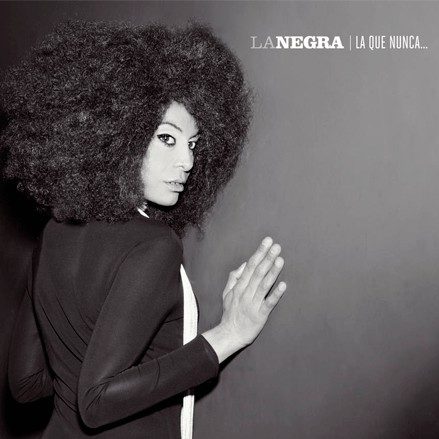2011 is the year he returns to the recording studio to put together his second record. This time he is accompanied by Juan Fernández “El Panky”, taking on the tasks of producer, composer and guitarist. Fernando Vacas, of the Eureka label, also joins as co-producer and composer. The three together create La que nunca a fusion pop that deconstructs genres such as flamenco, jazz or psychedelia getting to sound sophisticated and rabidly contemporary. This is demonstrated by the first breakthrough single, “La que nunca”, with an organic and accessible production that avoids common places and where some addictive strings stand out that echo the voice of La Negra.
The sound heterogeneity that dominates the 13 songs that make up the album serves as a perfect sound mattress for careful lyrics. Through them, La Negra tells us the story of Yukele in the first person. A fictitious character, without genre, abstract, symbolic and universal, who embarks on a journey from the south to the first world. A bittersweet ending awaits you when you discover that what you see there was not what you wanted, concluding that the best solution is to go back to your roots: your only option to regain happiness.
One of the best moments of the album is precisely the song Yukele. A jewel of infectious melody in which Howe Gelbb collaborates with keyboards and which has been mixed by Renaud Letang, producer of artists such as Manu Chao, Feist, Jane Birkin or Amadou & Marian. La Negra is moving around Fela Kuti, pure flamenco and French chanson -Black Trombone by Serge Gainsbourg-.
In The One that Howe Gelb has never collaborated with with his contribution to the keyboards, the double bass of Thoger T. Lund, Lin Cortés, Kilema and a selection of musicians from the Ivory Coast and Africans who have contributed a polyhedral and fascinating sound.
The one that was never recorded for a year at the Eureka studios in Córdoba and has been mastered in Black Saloon, London by Mandy Parnell (PJ HARVEY, BJORK, CHEMICAL BRORTHERS, etc)
